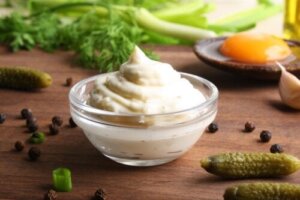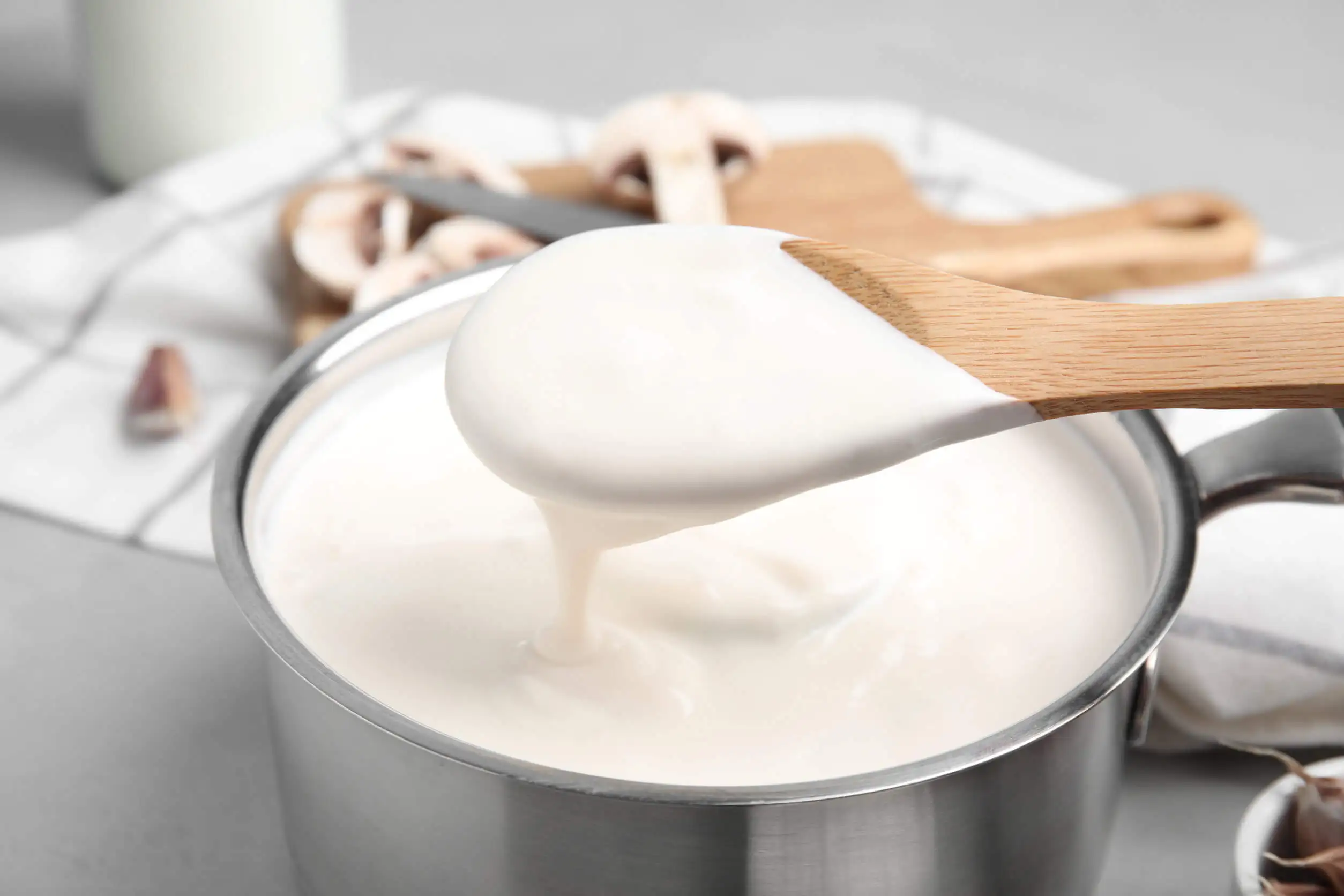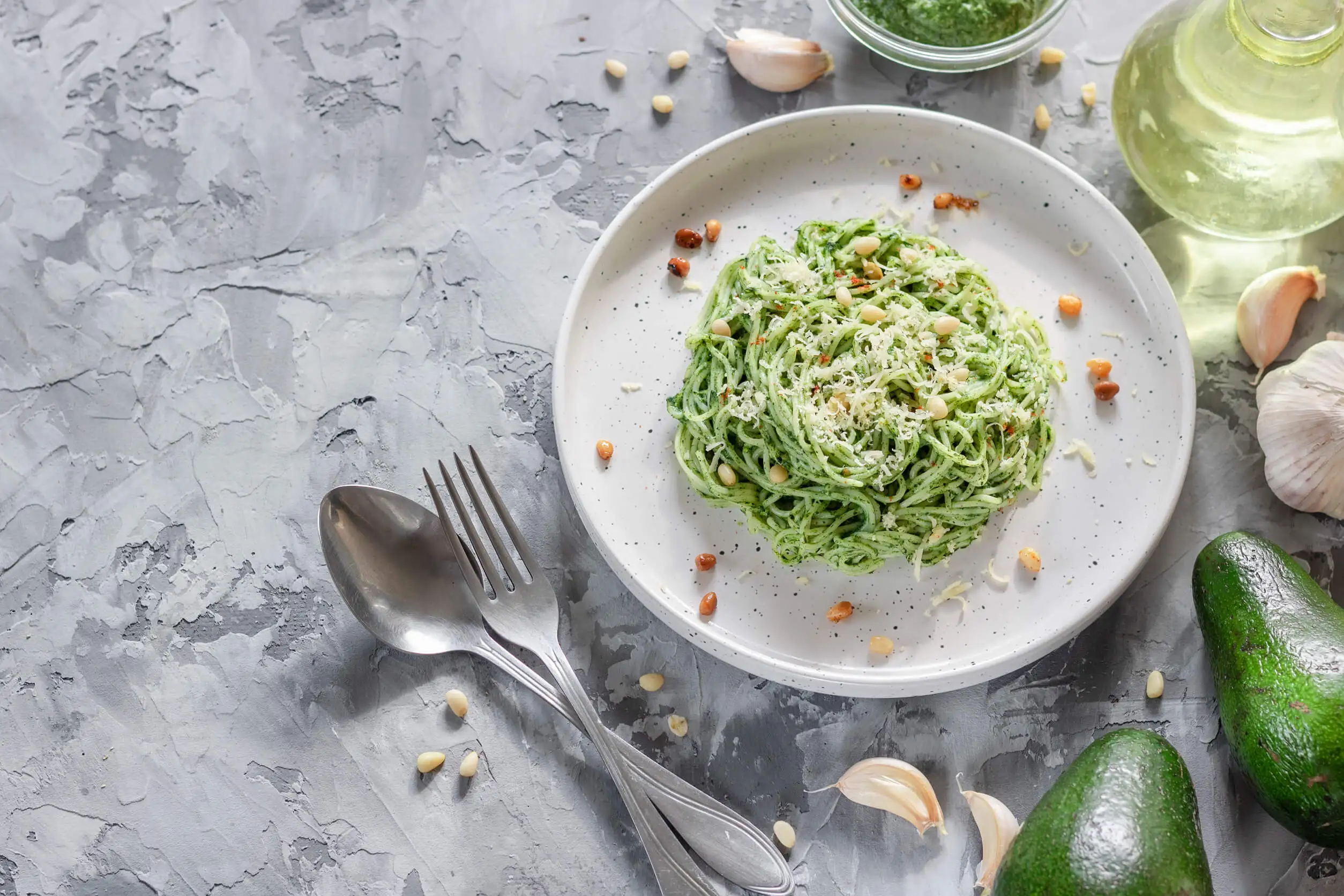Tartar Sauce: Nutrients, Benefits and How to Consume It


Written and verified by the nutritionist Saúl Sánchez Arias
Tartar sauce is perfect to accompany many dishes, such as those with root vegetables or fish as main ingredients. It’s simple to prepare and can have certain health benefits when included in the diet in the right way. After all, when it’s prepared at home, it ensures that only fresh ingredients are used, which greatly improves its nutritional properties.
Before we begin, we must emphasize that sauces should be consumed in moderation. Otherwise, the calories in the diet could be greatly increased, resulting in a progressive gain of fatty weight.
Over the weeks, this will generate a state of inflammation that will have a negative impact on health. It could even increase the incidence of certain chronic pathologies over the years.
Nutritional value of tartar sauce
From a nutritional point of view, it should be noted that tartar sauce has 63 calories per 30-gram (1 oz) serving. It contains 5 grams of fat and 4 grams of carbohydrates per serving and is able to provide important nutrients such as vitamin E and vitamin K. Although you shouldn’t overdo it, its consumption in moderate amounts can help to obtain the requirements of these essential elements.

In addition, this preparation can provide phytochemicals with antioxidant capacity, especially from the gherkins. These are capable of neutralizing the formation of free radicals and their subsequent accumulation in the body’s tissues. This effect has been shown to help reduce the risk of developing chronic pathologies over the years, such as cardiovascular diseases.
You may be interested in: 3 Delicious Recipes with Cuttlefish
Benefits of tartar sauce
First of all, we must highlight the effect of vitamin E in tartar sauce, a substance that also develops a strong antioxidant activity, as stated in a study published in the journal Nutrients. It can improve the functioning of the immune system, reducing the incidence of infectious and even chronic diseases.

Vitamin K, on the other hand, will help to improve bone health. Together with minerals such as calcium, it’s key to ensuring that bone density is optimal, which will help prevent fractures in the future.
This is especially important for women who have passed the menopausal stage, as the risk of osteoporosis increases. This is evidenced by research published in Clinics in Geriatric Medicine.
Vitamin K is also related to blood coagulation processes. Maintaining levels in optimal ranges will help to prevent changes that could affect the proper functioning of the cardiovascular system. However, with certain drugs, the intake should be limited.
How to consume tartar sauce?
Tartar sauce is normally available in all supermarkets. However, if it’s homemade, its quality will be higher, as this ensures the absence of additives in its composition. As a general rule, it can be served as an accompaniment to baked fish or potato dishes. It combines very well with both products and will improve their organoleptic characteristics.
Discover more here: When Vitamin K Is Prescribed and Why
Tartar sauce recipe
To prepare an exquisite tartar sauce you will need:
- 1 cup of plain Greek yogurt
- 3 tablespoons of sweet pickle sauce or 3-4 finely chopped pickles
- 1/4 teaspoon black pepper
- 2 teaspoons lemon juice
- Optional: capers
Preparation
- Mix all the above-mentioned ingredients in a bowl and stir until the sauce is as smooth as possible.
- It’s recommended to always serve it well chilled. It can be left in the refrigerator for a few minutes before using it, to enjoy it to the maximum.
- If you want to include this sauce in a vegan diet, simply change the Greek yogurt for one made from soy. You could even use vegan mayonnaise; no problem at all.
Tartar sauce, an exquisite condiment for many dishes
As you have seen, tartar sauce is a condiment that can be used with several types of dishes and has a fabulous flavor. It’s also a source of certain antioxidants and high-quality vitamins.
For this reason, you can include it in your diet, although it’s always important to moderate its consumption to avoid a calorie surplus that could condition the gain of fatty weight over time.
Finally, keep in mind that to improve the flavor of the dishes you could also add spices. These seasonings usually provide high-quality phytochemicals, so their consumption is associated with better health. In fact, they’re sometimes marketed in the form of supplements and in a more concentrated version to maximize their antioxidant effects.
All cited sources were thoroughly reviewed by our team to ensure their quality, reliability, currency, and validity. The bibliography of this article was considered reliable and of academic or scientific accuracy.
- Neha K, Haider MR, Pathak A, Yar MS. Medicinal prospects of antioxidants: A review. Eur J Med Chem. 2019;178:687-704. doi:10.1016/j.ejmech.2019.06.010
- Lee GY, Han SN. The Role of Vitamin E in Immunity. Nutrients. 2018;10(11):1614. Published 2018 Nov 1. doi:10.3390/nu10111614
- Srivastava M, Deal C. Osteoporosis in elderly: prevention and treatment. Clin Geriatr Med. 2002;18(3):529-555. doi:10.1016/s0749-0690(02)00022-8
This text is provided for informational purposes only and does not replace consultation with a professional. If in doubt, consult your specialist.








